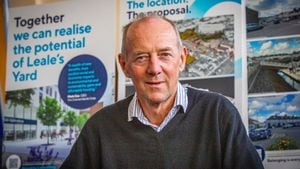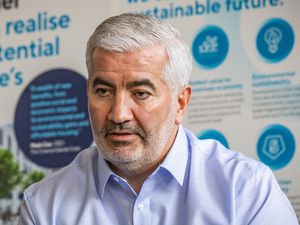‘Remove failed GP11 to help kick-start developments' - construction boss
A director of the island’s largest construction firm has told deputies they must free developers from GP11 if they are serious about encouraging house-building.

The States meeting which starts today will be dominated by a debate about scrapping the planning policy GP11, or setting it aside for up to five years, which would remove the requirement for larger developments to include social housing.
On the eve of that debate, Jeremy Rihoy from Rihoy & Son has written to all deputies to advise that getting rid of GP11 would be the single best thing they could do to kick-start the development of new private housing.
‘It is a failed policy whose only impact has been negative,’ said Mr Rihoy.
‘The thing the States can do now, if the aim is to encourage more house-building, is to remove GP11. You do not need a consultant’s report to tell you that. It is no more complicated than that and you should not be led into thinking otherwise.’
Simon De La Rue and Matt Fallaize look ahead to this week’s States meeting, where a debate on the controversial GP11 planning policy will be the focus
The market in private house building has been sluggish for years. It has slowed even further during the current States term, despite the Assembly repeatedly declaring that increasing the supply of housing was one of its major priorities.
Several firms in the development and construction sectors have blamed GP11, which was introduced in 2016 as part of the Island Development Plan, which succeeded the Urban Area Plan and Rural Area Plan.
‘First, GP11 is an additional tax focused on the development of new housing. Second, it is a massive and expensive bureaucratic impediment to the process,’ said Mr Rihoy, who was chairman of Rihoy & Son until last year and is now a director and adviser with the family firm.
‘If a government wants to encourage something, it will reduce taxes in that field or provide incentives or grants.
‘If a government wants to restrict activity in a sector, it will do the opposite. The imposition of GP11 is an excellent example of this.’
Mr Rihoy’s firm is involved in efforts to redevelop Leale’s Yard behind the Bridge seafront. Plans for the 13-acre site include building more than 300 housing units, some of which the States is likely to be asked to purchase later this year for key worker housing, reportedly for about £30m.
In his letter to deputies, Mr Rihoy said that dealing with the GP11 requirements on Leale’s Yard had already proved ‘time consuming and difficult’ and cost approximately £40,000, months before the start of any construction on the site.
‘If the aim is to encourage and promote house-building in Guernsey, then the answer is straightforward – get rid of GP11 altogether or support the amendment to suspend it for five years,' he said.





